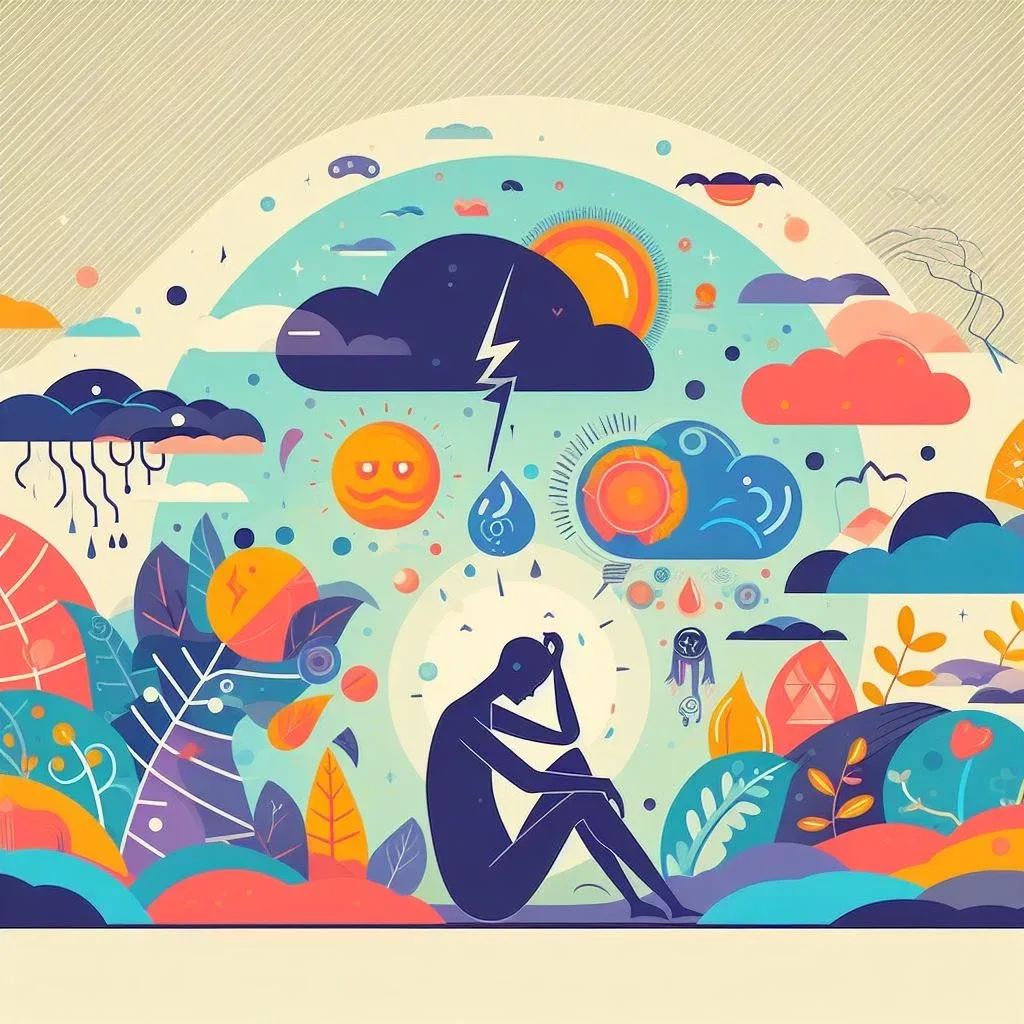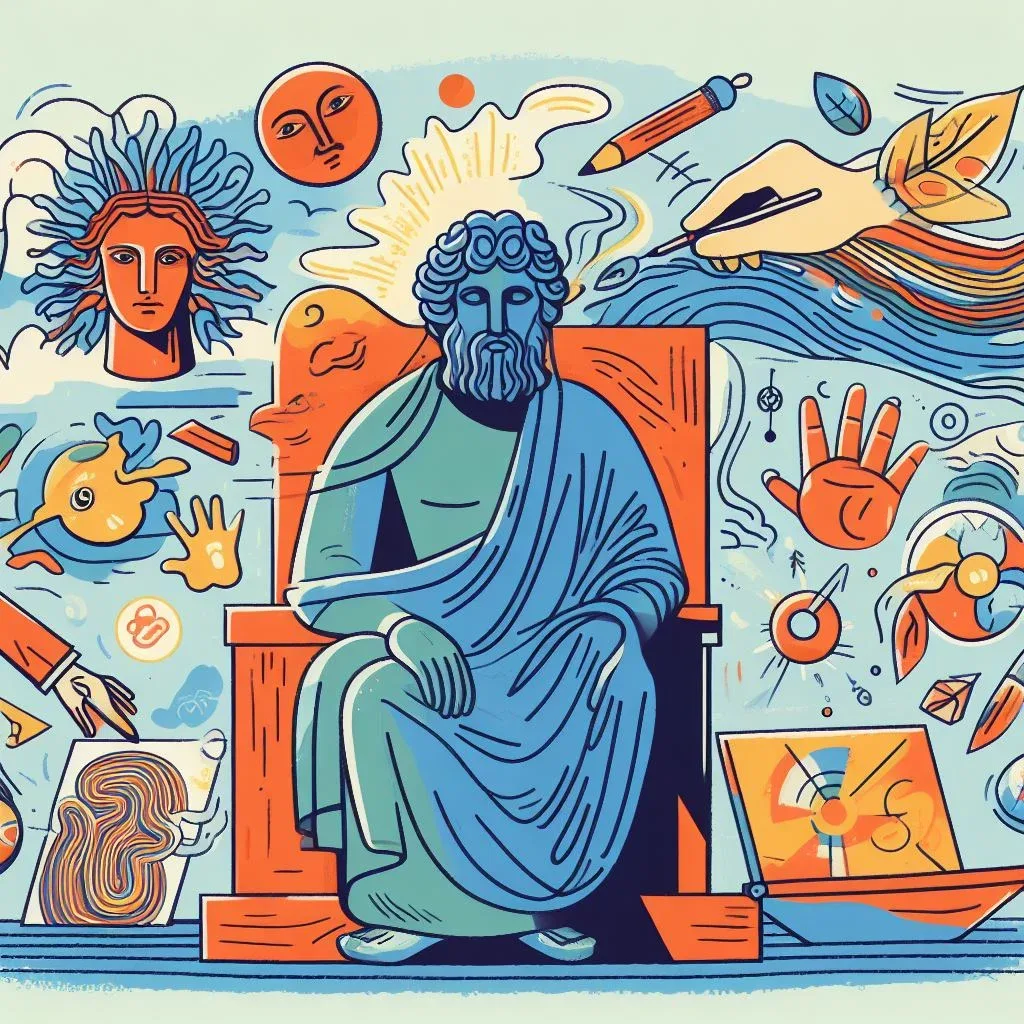We live in an era where anxiety is a constant presence. The pressures of work, relationships and daily responsibilities can easily lead to stress and restlessness. This is where Stoic philosophy, an ancient tradition more than two thousand years old, can offer valuable guidance. In this article, we will explore how the principles of Stoicism can be applied to deal with modern anxiety, offering practical techniques for finding serenity amid the chaos of the contemporary world.

What is Stoicism?
Stoicism is a practical philosophy which focuses on character development, virtue, and wisdom as a means of achieving happiness and inner peace. Stoics believe that although we cannot control external circumstances, we can control our reactions and attitudes towards them.
Principles of Stoicism

1. Distinction between what is and is not in our control:
Accept that there are things we cannot control, such as the actions of others or natural events, and focus on controlling our own attitudes and emotional responses.
2. Virtue as the Supreme Good:
The search for virtue, which includes wisdom, courage, justice and temperance, is fundamental to the Stoics. By acting virtuously, we achieve inner peace.
3. Acceptance and Love Fati:
Serenely accept life's circumstances, even adverse ones, and embrace them as opportunities for growth. “Amor fati” refers to loving one’s destiny, regardless of what he brings.
How to Apply Stoicism to Deal with Modern Anxiety?

1. Daily Gratitude Practice:
Being thankful for the little things in life can change our perspective, making us more focused on the present and less anxious about the future.
2. Worst-Case View:
By considering the worst possible situations, we can mentally prepare for them, reducing the fear and anxiety associated with these situations.
3. Meditation and Mindfulness:
Meditation and mindfulness are Stoic practices which help us focus on the present moment, calm the mind and reduce anxiety.
4. Control of News Consumption:
Limiting exposure to negative news can help reduce anxiety related to global events.
Conclusion
In an increasingly anxious world, stoicism offers a refuge of serenity. By internalizing Stoic principles, we can learn to accept life's uncertainties, cultivate gratitude, and find inner peace even in the most challenging situations. By practicing Stoicism, we not only face modern anxiety, but we also find a path to a calmer, more meaningful, and balanced life. As the Stoics remind us, our power is in our minds and our choices – choices that can free us from the prison of modern anxiety.
FAQ: How Stoicism Can Help Deal with Modern Anxiety

Here are some frequently asked questions about using stoicism to deal with modern anxiety:
1. What is stoicism and how can it help with anxiety?
Stoicism is an ancient philosophy that emphasizes virtue, self-discipline, and serenity. It can help with anxiety by providing tools to deal with stress and uncertainty.
2. What are the key principles of Stoicism?
Key principles include distinguishing between what is and is not in our control, the pursuit of virtue as the highest good, and the calm acceptance of circumstances.
3. How can I practice gratitude daily?
Practicing gratitude involves reflecting on the things you are grateful for, whether writing them down in a journal or simply thinking about them.
4. How can worst-case visualization help with anxiety?
Visualizing the worst-case scenario helps you face fears and worries, mentally preparing you for challenging situations and reducing anxiety.
5. How can I start meditating and practicing mindfulness?
Meditation and mindfulness involve the regular practice of focusing on the present. There are many resources and apps that can help you get started.
6. Should I avoid the news completely to reduce anxiety?
It's not necessary to avoid the news completely, but limiting exposure to negative news can be beneficial for reducing anxiety.
7. Can I combine stoicism with other approaches to anxiety?
Yes, Stoicism can be combined with other anxiety management techniques, such as cognitive behavioral therapy, for even better results.
8. How long does it take to see results when practicing Stoicism?
Results may vary, but many people report benefits after a few weeks or months of consistent practice.
9. Is Stoicism suitable for everyone, regardless of their religious beliefs?
Yes, Stoicism is a philosophy that can be applied by people of different religious beliefs or even by those without religion.
10. Can stoicism replace professional help in treating anxiety?
Stoicism can be a useful tool for dealing with anxiety, but in severe cases, it's important to seek help from a mental health professional.

Stoic philosophy as a guide to lasting happiness
365 Stoic Reflections presents Stoic principles that can help you find true happiness, regardless of external circumstances.
BUY NOW





